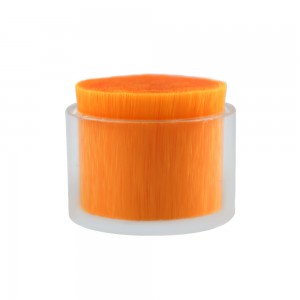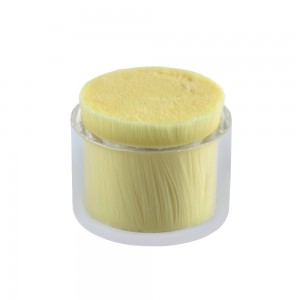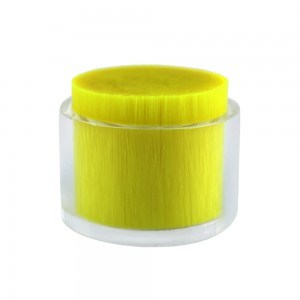PA66
PA66 is a versatile material commonly utilized in the production of various items such as toothbrush bristles, strip brushes, cleaning brushes, industrial brushes, and brush wire. This durable and flexible polymer plays a pivotal role in crafting bristles for oral hygiene tools, including toothbrushes, as well as for creating brushes used in cleaning applications across different industries.

PA66, also known as nylon 66, exhibits similar characteristics to PA (polyamide). However, it generally has slightly lower water absorption rates and higher temperature resistance compared to PA. These enhanced properties make PA66 a preferred choice for applications requiring durability and thermal stability. Despite its advantages, the use of PA66 may entail slightly higher costs compared to PA6 due to its superior performance.
When it comes to industrial brush production, nylon brush wire is one of the most commonly used materials. Nylon brush wire, composed primarily of polyamide, commonly known as nylon, is a type of thermoplastic resin. Polyamide, abbreviated as PA, features a molecular main chain containing repeat units of the amide group - [NHCO]-. It encompasses various types such as aliphatic PA, aliphatic-aromatic PA, and aromatic PA. Among these, aliphatic PA is the most widely produced and utilized, with its nomenclature determined by the number of carbon atoms in the synthesis of the specific monomer.

Nylon, also known as polyamide, comes in various forms, with nylon 6 and nylon 66 being the primary varieties. These two types of nylon hold absolute dominance in the realm of nylon modification, offering a plethora of options for customization. Some of the extensively used modified nylon varieties include reinforced nylon, monomer casting nylon (MC nylon), reaction injection molding (RIM) nylon, aromatic nylon, transparent nylon, high-impact (super-tough) nylon, electroplating nylon, conductive nylon, flame-retardant nylon, and nylon alloys. These specialized nylon formulations cater to diverse requirements, ranging from enhanced strength and durability to specific functional properties such as transparency, conductivity, and flame resistance.
Nylon and its derivatives serve as versatile alternatives to traditional materials such as metal and wood. They find widespread applications in various industries, serving as substitutes for metals in machinery components, wood in construction, and other structural materials. The adaptability and versatility of nylon make it indispensable in modern manufacturing processes, contributing to advancements in product design, performance, and sustainability.






